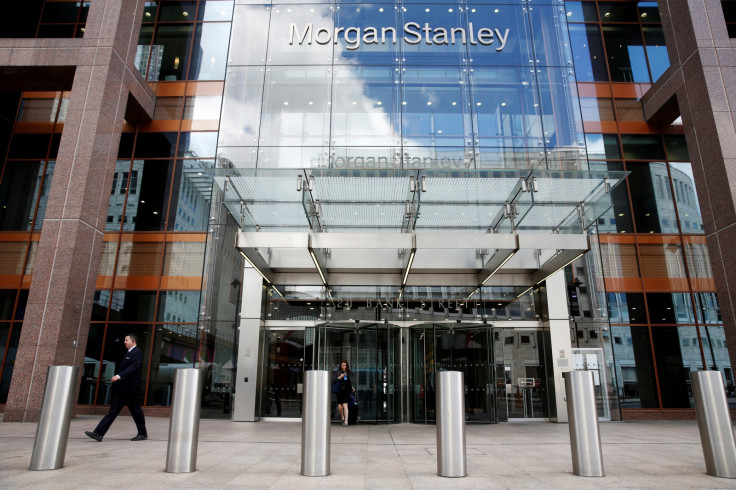Morgan Stanley considers moving 300 jobs away from the UK after Brexit
US banking giant reportedly in talks to move jobs to Frankfurt or Dublin once Britain leaves the EU.

Morgan Stanley is reportedly considering moving approximately 300 jobs away from Britain to either Dublin or Frankfurt, once the UK leaves the European Union.
According to sources cited by Bloomberg, the banking giant will has not yet decided which city it will move its workforce to, but the Frankfurt and the Irish capital top the list of possible alternatives.
Britain will trigger Article 50 of the EU constitution, which will effectively rubber-stamp its intention to leave the bloc, by the end of next month and Prime Minister Theresa May confirmed the UK will also leave the single market, meaning lenders will not retain access to the European banking passport system.
This allows banks and other financial institutions authorised to operate in an EU country, or a state member of the European Economic Area (EEA), to conduct business across the union. It is understood that Morgan Stanley, might have to move up to 1,000 jobs across its sales and trading, risk management, legal and compliance divisions.
"Our focus is on ensuring that we can continue to service our clients whatever the Brexit outcome," a spokesman for the lender said in response to the report.
"Our strong franchise and material presence in Europe gives us many options, and we will adapt as the details of Brexit become clear. Given all of this, no decisions have yet been made."
Frankfurt, Amsterdam, Luxembourg and Dublin have all emerged as possible destinations for London-based banks but analysts have warned it would be nigh on impossible to replicate London's environment abroad, in terms of workforce and infrastructure.
Frankfurt – Germany's finance hub, and home of the European Central Bank and Deutsche Boerse – has a world-class transport network while its airport is a global aviation hub which serves a super-connector terminal for flights between the Americas and Asia.
Additionally, letting office space in Frankfurt would 10-15% cheaper per square foot compared to London, according to data provided by Knight Frank Estate Agents. The only problem is that Frankfurt is a provincial town, functional not chic, and in no way geared up to cope with a mass influx of bankers, or anyone else for that matter, looking to escape a Brexit-burdened London.
Dublin faces a similar dilemma. Language, time zone and common law are the same over the Liffey as they are in London, while Ireland's 12.5% corporate tax rate has also proved very appealing with international firms.
However, while the advantages might be obvious, Dublin also shares some very familiar problems with London, such as a chronic housing shortage.
"A shortage of housing and rising rents are two issues currently facing Dublin and require urgent attention from the government. Increased investment is also required in Dublin's public transport," Graeme McQueen of the Dublin Chamber of Commerce told IBTimes UK in July.
© Copyright IBTimes 2025. All rights reserved.






















